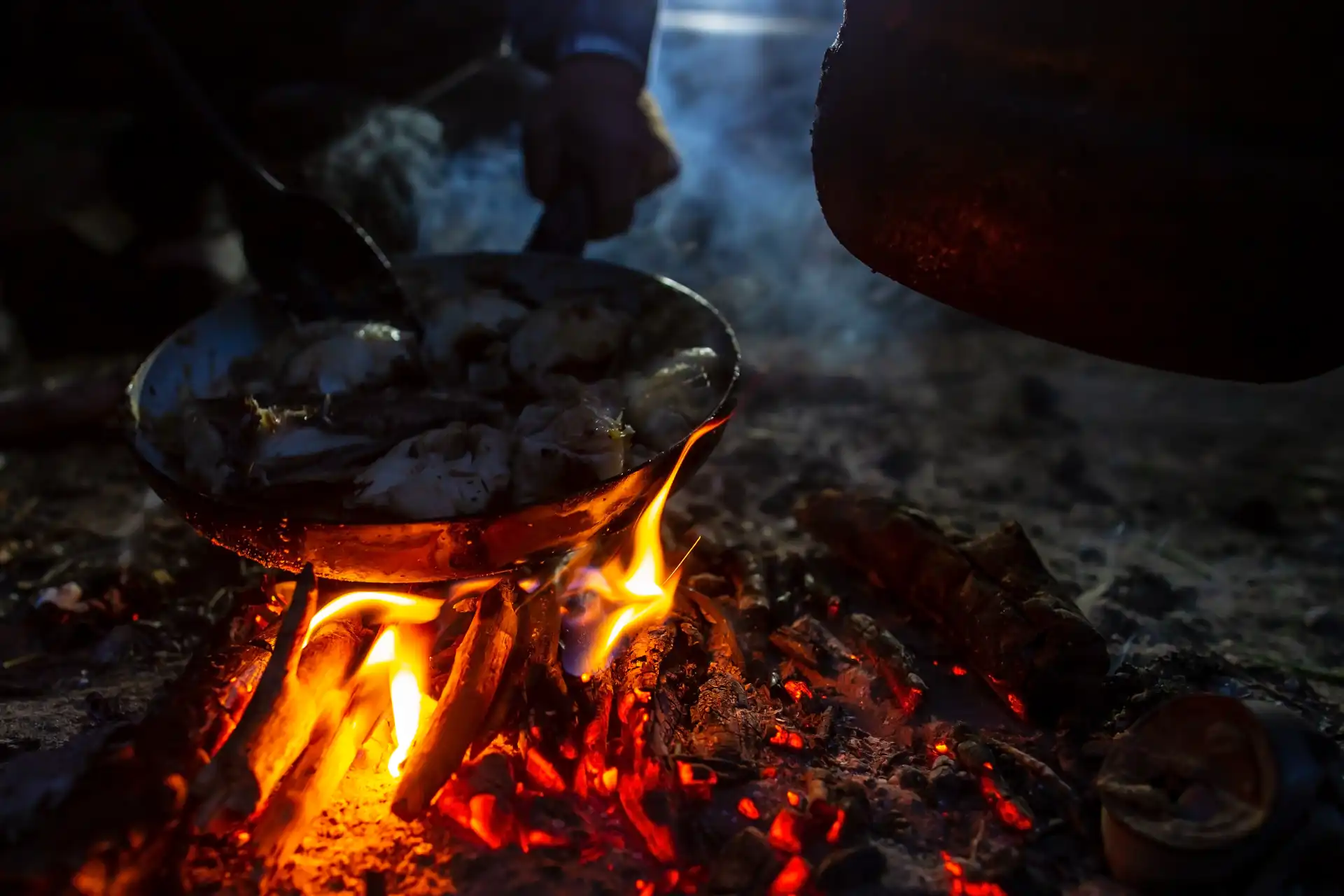Best Off-Grid Cooking Methods Every Prepper Should Know
When the power goes out and the grid fails, your ability to cook becomes more than a convenience—it becomes a survival necessity. In 2025, preppers are rethinking the kitchen and investing in off-grid cooking methods that are simple, efficient, and reliable no matter the conditions.
Whether you’re bugging out or sheltering in place, this guide walks through the most effective ways to prepare food without electricity or gas. These methods aren’t just for emergencies—they’re a cornerstone of any serious survival plan.
1. Rocket Stove: High Heat, Low Fuel
The rocket stove is a compact, fuel-efficient cooking device that burns small sticks and biomass. It’s ideal for outdoor use and can reach high temperatures quickly while using minimal fuel.
- Pros: Lightweight, portable, efficient
- Cons: Requires dry wood or twigs, not ideal for indoor use
Perfect for: Boiling water fast, cooking rice, heating canned foods.
👉 Learn more: Building a Home Survival Kit
2. Solar Oven: Harnessing the Sun
In sunny climates, solar ovens are a powerful and eco-friendly way to cook. They concentrate sunlight using mirrors or reflectors to bake, roast, or boil food slowly over time.
- Pros: No fuel required, silent, sustainable
- Cons: Weather dependent, slower than other methods
Perfect for: Bread, stews, casseroles, and long-cook meals.
Tip: Position your oven throughout the day for maximum sun exposure.
3. Propane Camp Stove: The Reliable Standby
Used by campers and van-lifers for years, the propane stove remains one of the easiest and most familiar off-grid cooking options. It’s quick to light and easy to control.
- Pros: Instant heat, familiar interface, widely available
- Cons: Requires fuel canisters, not ideal for long-term use without resupply
Perfect for: Almost anything you’d cook on a standard gas range.
Note: Always use in well-ventilated areas and stock at least 3–4 canisters per month.
4. Fire Pit or Campfire Cooking
Sometimes the oldest method is still one of the best. An open flame offers full flexibility if you have wood, space, and safety precautions in place.
- Pros: Flexible, great for grilling, boiling, or Dutch oven meals
- Cons: Produces smoke, weather dependent, less portable
Perfect for: Grilling meats, boiling water, slow-cooked stews in cast iron.
Tip: Build a three-rock setup or use a grill grate over the fire for more control.
👉 Related: Long-Term Food Storage Guide
5. Alcohol Stove: Simple and Compact
Alcohol stoves use denatured alcohol, which is easy to store and widely available. They’re small, quiet, and perfect for minimalist setups or bug-out bags.
- Pros: Lightweight, reliable, cheap fuel
- Cons: Can spill, lower heat output than gas
Perfect for: Solo preppers, emergency kits, boiling water, heating rations.
6. Charcoal Grill or Hibachi
If you already own a grill, you have a powerful survival tool. Charcoal grills provide even heat and are great for cooking in bulk.
- Pros: Durable, multi-person meals, smokey flavor
- Cons: Fuel intensive, slower than gas
Store extra charcoal in sealed buckets to avoid moisture and ensure long-term availability.
7. Thermal Retention Cooking (Haybox Method)
This lesser-known method uses insulation to slow cook food after an initial boil. It’s a fuel-saving option that’s making a comeback.
- Pros: No continued fuel use, safe, sustainable
- Cons: Requires preparation and planning
Wrap your hot pot in layers of blankets or place it inside an insulated box. It’ll continue to cook slowly for hours.
Bonus: No-Cook Meal Strategies
Even with off-grid methods, having no-cook backup meals is smart. Think:
- Jerky, trail mix, energy bars
- Dehydrated fruit and nuts
- Powdered drink mixes and protein powders
Stock up on these in case fuel runs out, weather prevents cooking, or you’re on the move.
Conclusion: Cook to Survive—and Thrive
Prepping isn’t just about calories. It’s about morale, nutrition, and normalcy. The right off-grid cooking methods give you the power to eat well, feed your family, and maintain control even when the grid fails.
Build your cooking arsenal now, test each method, and integrate it into your lifestyle. When the lights go out, your dinner doesn’t have to.
✔️ Suggested reading to round out your off-grid skills:
Stay self-sufficient. Stay smart. Cook like the grid never mattered.
